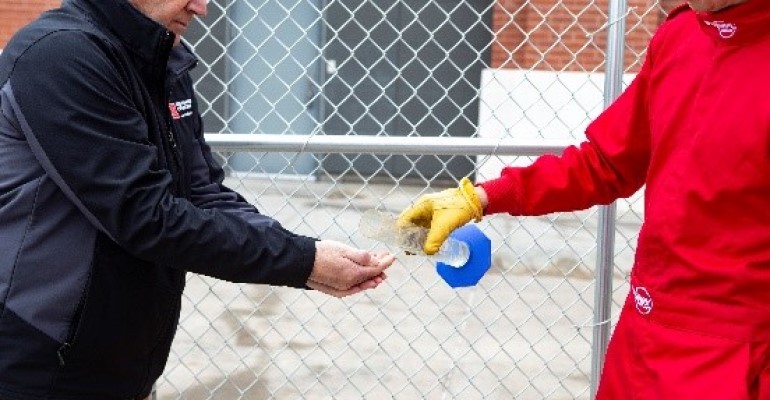Interim limits for certain impurities could be overly restrictive and create roadblock for ethanol producers.

The U.S. Food & Drug Administration issued revised guidance on the production of ethanol for hand sanitizer on Monday night. Ethanol industry stakeholders warned that the new guidance will not help alleviate the hand sanitizer shortage in any meaningful way.
FDA released temporary guidance on March 27, 2020, regarding ethanol used for hand sanitizer production during the COVID-19 pandemic. Based on this guidance, biofuel manufacturers made investments and began production of alcohol for hand sanitizer. FDA then inexplicably revised this guidance on April 15, 2020, to require that ethanol made for hand sanitizer adhere to U.S. Pharmacopeia (USP) or Food Chemical codex (FCC) standards unless otherwise approved and requested that ethanol companies submit data regarding any impurities. This left many in the industry unclear of what standards need to be met.
The agency's latest guidance stated, “The FDA is working with industry to ensure that harmful levels of impurities are not present if ethanol is used in these products. Based on careful review and consideration of available data, we are specifying interim levels of certain impurities that we have determined can be tolerated for a relatively short period of time, given the emphasis on hand hygiene during the COVID-19 public health emergency and to avoid exacerbating access issues for alcohol-based hand sanitizer.”
Renewable Fuels Assn. (RFA) president and chief executive officer Geoff Cooper said, “While we appreciate that FDA responded to RFA’s request for more clarity and specific interim impurity limits, we do not believe the new guidance will help alleviate the hand sanitizer shortage in any meaningful way. We welcome the specificity in the new guidance, but the new interim limits for certain impurities are overly restrictive and create a roadblock for producers who could otherwise supply huge volumes of safe, clean, high-quality ethyl alcohol to hand sanitizer manufacturers.”
For example, RFA said, FDA’s new limits for certain impurities are eight times more restrictive what is typically found in a glass of red wine and 20 times more restrictive than what has been allowed in hand sanitizer by other countries, including Canada, during the COVID-19 pandemic.
FDA said it is the agency's understanding that some larger hospital systems have been able to replenish their supply of hand sanitizer, but it continues to hear that some smaller hospital systems and outpatient facilities are still experiencing difficulties in accessing alcohol-based hand sanitizer.
“Meanwhile, as hospitals, first responders, nursing homes, restaurants, retail stores, churches and other public and private spaces seek out new sources of hand sanitizer to address the shortage, the U.S. continues to significantly ramp up imports of hand sanitizer from China and other countries,” Cooper said. “It is unfortunate that we are importing this product from China when abundant supplies of high-purity, American-made ethanol could be used instead.”
FDA said it believes that its temporary guidance sets the proper level of flexibility at the current time to help protect Americans during this public health emergency. “We do not make any decision lightly and are continually assessing the needs and circumstances related to our temporary policies and how best to protect public health. As relevant needs and circumstances evolve, the FDA intends to update, modify or withdraw these policies as appropriate,” FDA said.
Cooper noted that the ethanol industry will continue to work with FDA to ensure that ethanol producers can do their part to combat COVID-19 and provide larger quantities of ethyl alcohol for hand sanitizer.
About the Author(s)
You May Also Like




.png?width=300&auto=webp&quality=80&disable=upscale)
